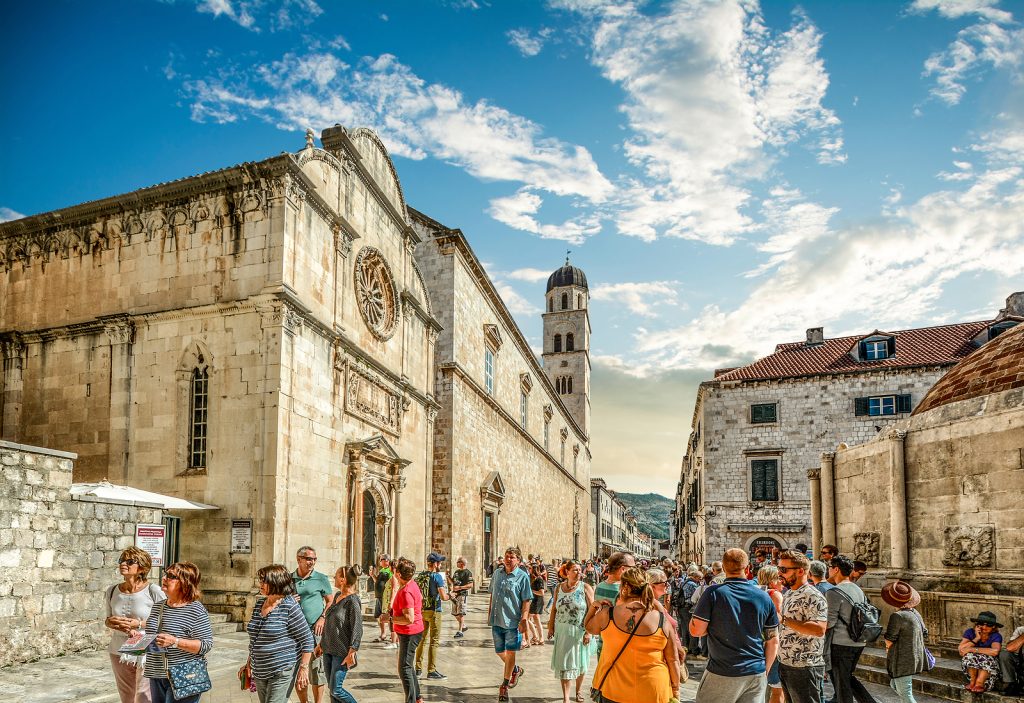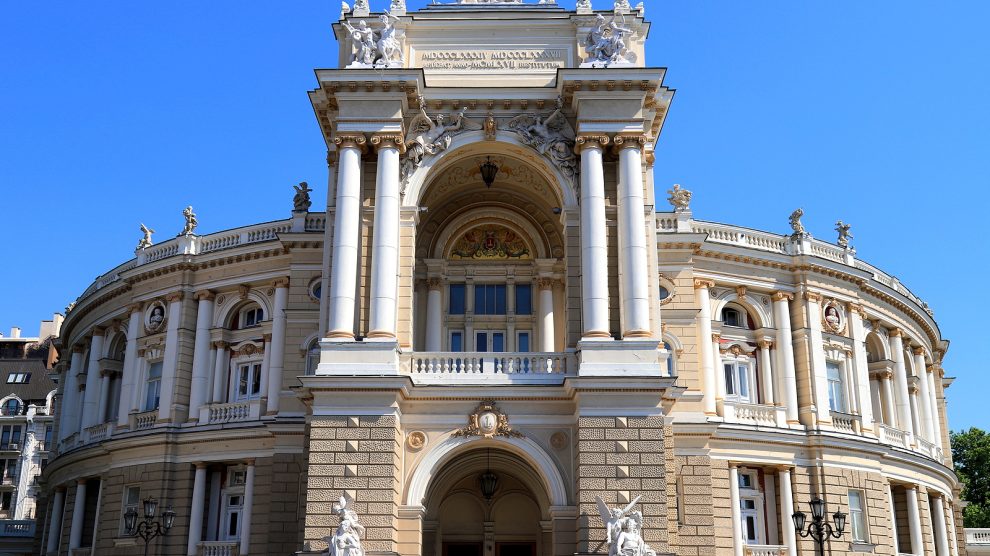The plight of Odesa recalls the addition of Dubrovnik, in Croatia, to the UNESCO World Heritage in Danger list in December 1991 following Serb bombing of its historic centre.
UNESCO’s World Heritage Committee this week decided to inscribe the Historic Centre of Odesa in Ukraine on its World Heritage List, recognising the outstanding universal value of the site and describing it as “the duty of all humanity” to protect it.
- Decentralisation is NAFO’s greatest strength
- Why, during wartime, Ukraine’s EU integration is more important than ever
- Dare we hope that an agreement between Serbia and Kosovo is possible?
The site, which includes the National Academic Opera and Ballet Theatre, pictured above, has also been inscribed on UNESCO’s List of World Heritage in Danger. This additional listing will provide the city with access to reinforced technical and financial international assistance, which Ukraine may request so as to ensure the protection of the property and, if necessary, assist in its rehabilitation.
“Odesa, a free city, a world city, a legendary port that has left its mark on cinema, literature and the arts, is thus placed under the reinforced protection of the international community. While the war continues, this inscription embodies our collective determination to ensure that this city, which has always surmounted global upheavals, is preserved from further destruction,” said Audrey Azoulay, UNESCO’s director-general.
A key Black Sea port, Odesa has been threatened ever since Russia began its invasion of Ukraine in February last year. Russia has bombed the city several times – including on January 26, a day after the UNESCO decision was announced.
While it usually takes years for a site to inscribed in UNESCO’s list, the organisation expedited the procedure in record time in view of the ongoing threats to the city. As early as last summer, UNESCO linked international experts with Ukrainian experts to prepare the nomination, with the support of Italy and Greece.
Ukraine’s President Volodymyr Zelensky made the submission – which described Odesa as a “conglomerate of different cultural traditions and a harmonic architectural polyphony” – official in October 2022, in an online speech to UNESCO. The evaluation bodies examined the nomination over the following weeks, allowing for a review at this week’s extraordinary World Heritage Committee in Paris, where the 21 member states of the committee approved the decision with six votes in favour, one against and 14 abstentions.
“I’m grateful to partners who help protect our pearl from the Russian invaders’ attacks,” Zelensky said.
Russia, which repeatedly tried to delay the vote, said that it had “no argument” with the decision to celebrate and protect Odesa’s legacy. However, the Russian Foreign Ministry, in a statement, said, “the sole threat to the city’s rich history stems from Ukraine’s nationalist regime which systematically destroys monuments to the founders and defenders of Odesa”.
A monument to Russian Empress Catherine II, often cited by Russia as the port’s founder, was dismantled last year.
In recent months, in parallel with the process of inscribing the Historic Centre of Odesa on the World Heritage List, UNESCO has implemented a series of emergency measures on the ground to help protect the site.
UNESCO has aided repairs to damage inflicted on the both the city’s Museum of Fine Arts and the Museum of Modern Art, and has provided equipment for the digitisation of nearly 1,000 works of art and of the documentary collection of the Odesa State Archives.
Equipment was also delivered to protect the buildings as well as open-air works of art.

Recalling Dubrovnik
The plight of Odesa recalls the addition of Dubrovnik, in Croatia, to the UNESCO World Heritage in Danger list in December 1991 following Serb bombing of its historic centre. The city was already a UNESCO World Heritage site, and the Serb bombing campaign was a public relations disaster for the regime of Slobodan Milošević.
UNESCO played a key role in the reconstruction and renovation of the old city which was removed from the danger list in 1998.
Ironically, the Croatian city has in recent years been threatened with removal from the World Heritage list in the wake of overtourism, primarily as a result of featuring in the HBO series Game of Thrones.
In response, in 2019 the city’s council introduced a limit on the number of visitors per day, and the number of cruise ships allowed to dock in the city’s harbour.
Unlike many news and information platforms, Emerging Europe is free to read, and always will be. There is no paywall here. We are independent, not affiliated with nor representing any political party or business organisation. We want the very best for emerging Europe, nothing more, nothing less. Your support will help us continue to spread the word about this amazing region.
You can contribute here. Thank you.







Add Comment